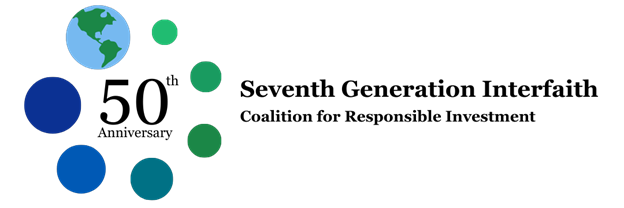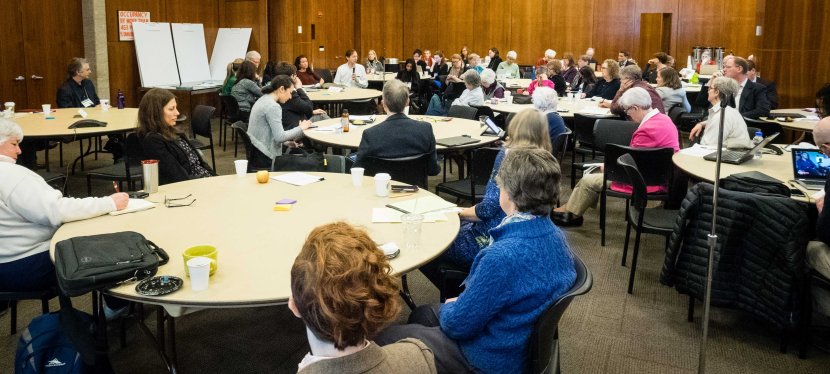On September 12th, Seventh Generation Interfaith Coalition for Responsible Investment (SGI) will celebrate fifty years of service for people and planet. Founded in 1973 by pioneers in corporate shareholder engagement, Fr. Michael Crosby, O.F.M., Cap., Sr. Alphonsa Puls, S.S.S.F., and Sr. Charlita Foxhoven, S.S.S.F., SGI members have engaged multinational corporations to promote more sustainable and just practices for five decades.
The 50th Anniversary Celebration will take place at SGI’s annual conference on Tuesday, September 12th, from 4:30 p.m. to 7:30 p.m. at St. Francis Parish, located at 1937 N. Vel R. Phillips Avenue, Milwaukee, WI 53212. There will also be an option to attend virtually.
While recognizing the landmark achievements of the organization under Fr. Crosby and its co-founders, the conference will also focus forward, on how Milwaukee-based SGI is working to shape better outcomes at corporations in the 2020s and beyond.
The conference will include two panel conversations and a keynote from Tim Smith of the Interfaith Center on Corporate Responsibility (ICCR). The first panel will look back over SGI’s first fifty years and will be led by SGI members:
- Dan Tretow, Director of Financial Services, School Sisters of St. Francis,
- Barbara Jennings, CJS, Sisters of St. Joseph of Carondelet St. Louis,
- Brigid Clingman, OP, Grand Rapid Dominicans,
- Tim Dewane, Director of Shalom – Justice, Peace, & Integrity of Creation, School Sisters of Notre Dame Central Pacific Province
The second panel will discuss the evolution and future of responsible and sustainable investing. This panel will include:
- William Burkhart, CEO of The Investor Integration Project,
- Rev. Kirsten Snow Spalding, Vice President of Ceres,
- Josh Zinner, CEO of ICCR
In addition, Dan Tretow, the member representative for the School Sisters of St. Francis (S.S.S.F.), will receive the 2023 Fr. Mike Crosby Award.
From SGI’s inception, Fr. Mike aided faith groups to ensure their investments reflect their beliefs and values, rather than inadvertently funding activities that conflict with those values. While smaller faith groups face particular obstacles given the complexity and challenges of investing, SGI has proven to be low cost and efficient as members implement faith-consistent investing with limited resources. SGI was the first coalition to join ICCR to enhance its shareholder advocacy for systemic change.
SGI’s 50-year track record promoting environmental and social corporate responsibility and facilitating values-aligned investing spans many of the most urgent environmental and social issues facing people today, including climate change, economic inequality, racial justice, workplace diversity, political spending and lobbying disclosure, and executive compensation.
Please join us in celebrating 50 Years of SGI!
.










